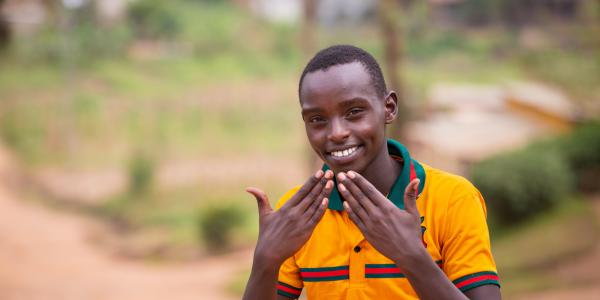
 Clementia, Nora and the seeds of change
Clementia, Nora and the seeds of change
Heri ya mwaka mpya (that’s happy new year in Swahili)! I hope you are keeping safe and have had a good start to 2021. I'm delighted to update you again about the Education for Life project and how we’re supporting vulnerable young girls in Kenya to have a brighter future.
January's featured volunteer
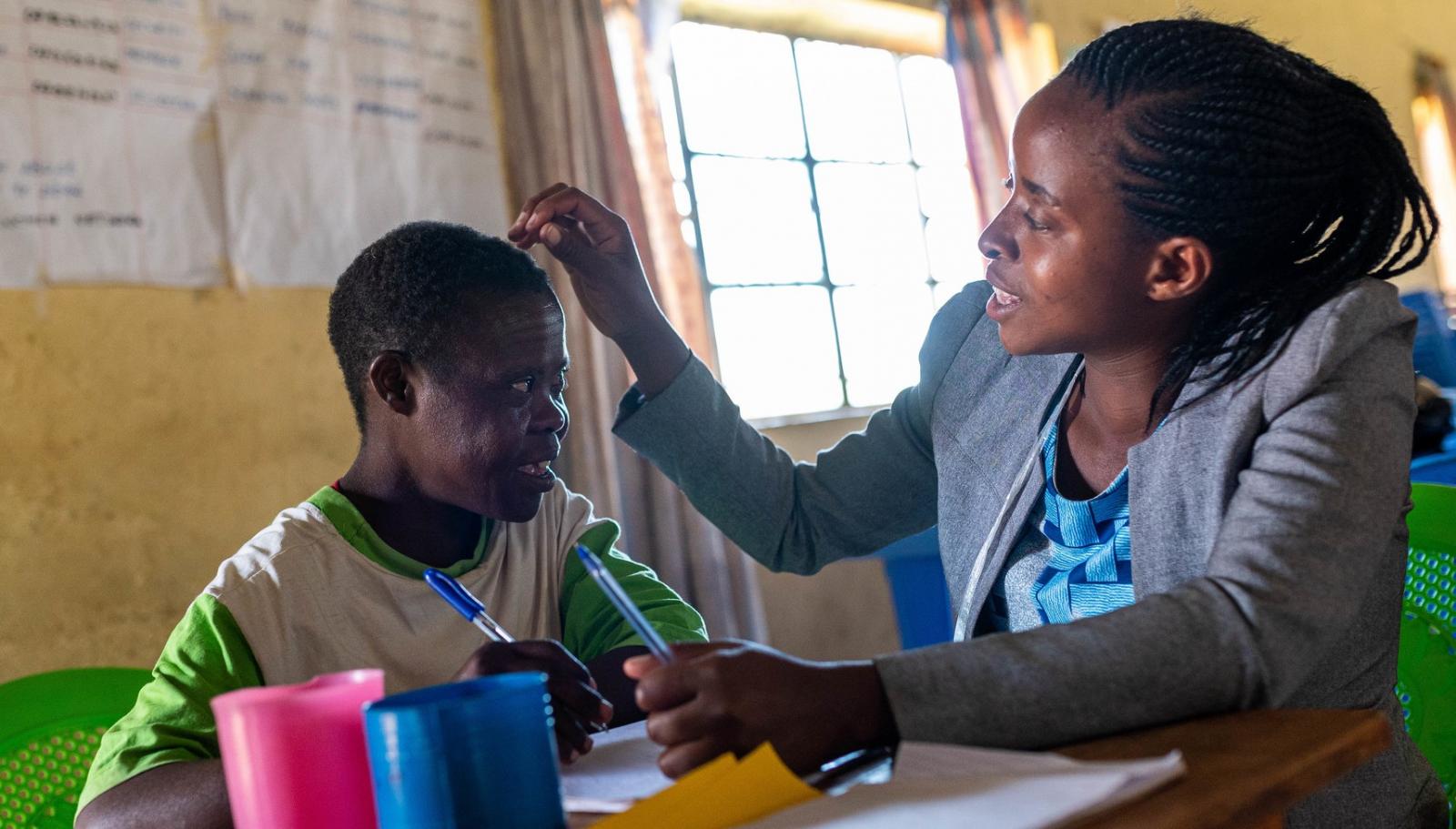
One of our goals on the project is to support girls with additional needs, such as physical and learning disabilities. It’s an area of the project that I’m extremely proud of. I help my teachers to use inclusive learning styles in their teaching, so they can better support all their students. In this update, I wanted to talk about two disabled girls called Nora and Clementia* who, with the right support, have made some amazing progress.
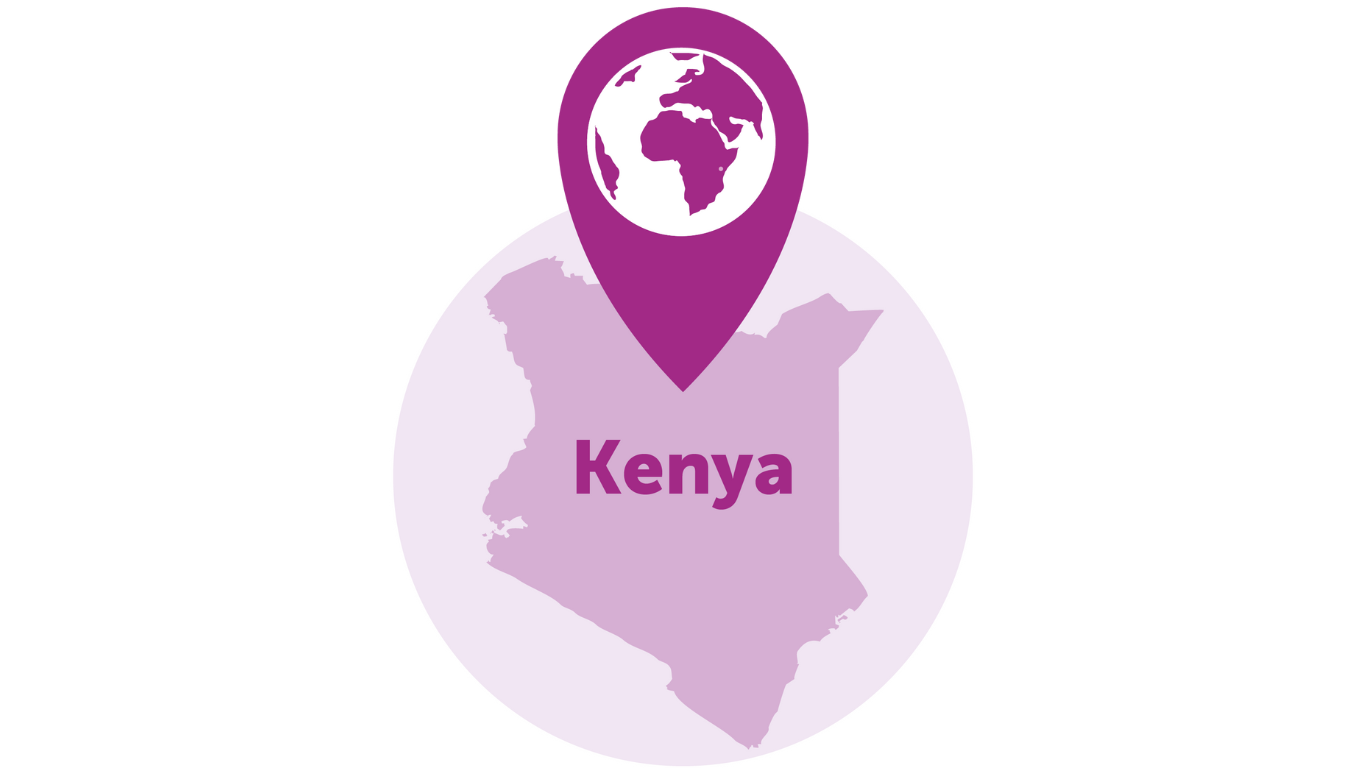
I’m proud to be a volunteer teacher trainer on the Education for Life project. It was set up to help girls aged 10-19 who were forced out of school to complete their education.
I work in Migori, an area I know well as I grew up in the neighbouring county; it’s very remote and rural, and poverty here is high.
January '21 volunteer update
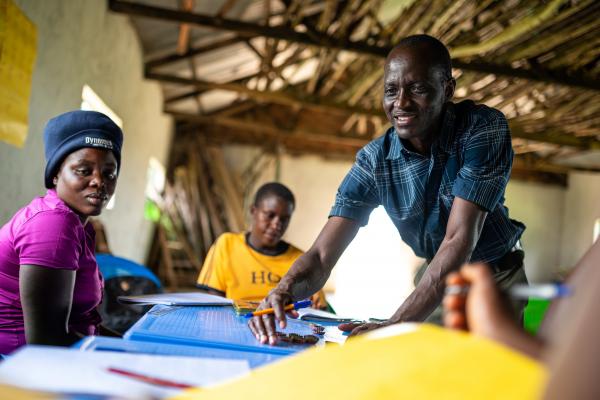
Disability in Kenya
In Kenya, we have specific laws to protect people with disabilities. But, just because laws exist, it doesn’t always mean they are enforced. Discrimination against people with disabilities is rife and they are often excluded from society.
Many families here do not see the point of educating their disabled children. If a child has a physical or learning disability, often they are kept inside the house to help with chores rather than attend school.

The importance of inclusive learning
As well as huge stigma, a lot of schools in this area don’t use inclusive teaching practices. As I’m sure you will know, particularly if you’re a teacher, using different learning methods such as practical demonstrations, open discussions and pictures are immensely important for the learning of any student. Yet these methods can be even more vital for students who have additional needs or a learning disability.
Not all the teachers here are familiar with these different teaching methods or may not know how to use them in their classes. Children with learning difficulties or disabilities might also need one-to-one support from a teacher or assistant – support that is by no means guaranteed.
It’s vital that our students with additional needs have the right support with high quality teaching, and we aim to provide this at the Education for Life catch-up centres in Migori.
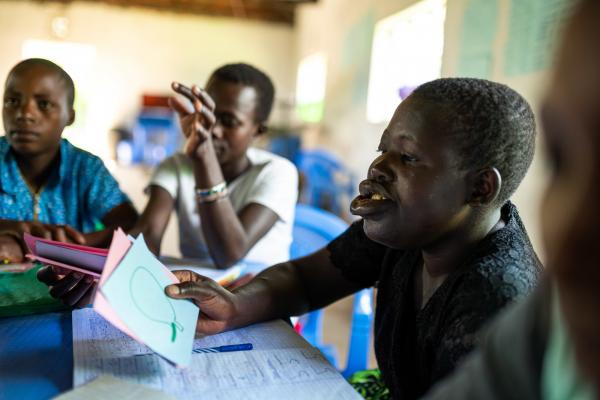
A new start for Nora
Nora is 18 years old and attends one of our catch-up centres. She was born with a facial deformity and, although she does not have a learning disability or difficulty, she stopped going to school when she was nursery-age. Nora’s brothers and sisters went to school, but her parents didn’t think it was worth educating a disabled girl.
Before coming to the centre, Nora was kept at home to help with the household chores, meaning she missed out on an education and making friends. Although this might seem shocking, it’s unfortunately not uncommon in this part of Kenya.
Now Nora attends the centre, and has a mentor called Phoebe and a teacher called Eunice. They’ve both worked hard to help her settle in and she and Phoebe have built a very close relationship. When Nora first started, she told Phoebe she was worried no one would love her because of her deformity; she felt different to the other girls and it took a long time for her to feel comfortable.
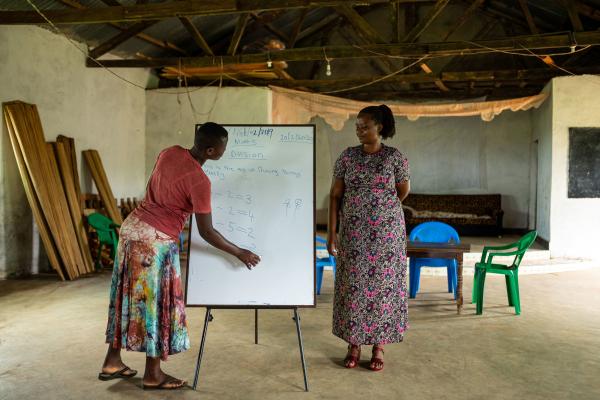
Nora has lived with stigma since she can remember. But, slowly, Phoebe and Eunice have been able to build her confidence and help her realise her value. They explained to Nora that an education will enable her to have an income and independence and, having had no schooling all her life, Nora is now learning to read and count and wants to become a tailor. It really is a huge transformation and the bond between Nora and Phoebe is incredible to see.
Clementia’s story
I’ve been working very closely with a teacher called Rael to help her incorporate inclusive learning styles into her teaching. I’m so impressed with her progress and very proud of her.
Rael works closely with a 17-year-old girl called Clementia, who has Down syndrome. Like many of the girls at the centre, Clementia lives in extreme poverty with her mother and siblings. She had never been to school before attending the centre yet, with the help of her teacher and mentor, Clementia is learning and changing.
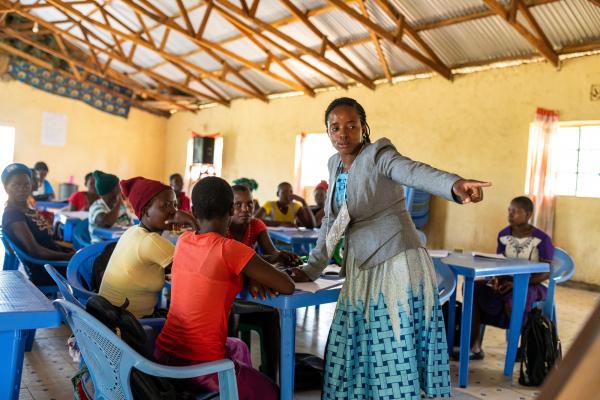
Rael is using pictures, videos and lots of practical demonstrations to help her learn. Clementia can now count to ten in her local language and is learning to write by copying letters. She loves singing and dancing too. Her mother says she’s seen a huge improvement in her daughter since she started attending the centre – it really is wonderful news to hear.
Unfortunately, Clementia is extremely vulnerable and is unlikely to get married out of choice. Since her family is also very poor, there’s a chance that Clementia may be married for a bride price - a tradition where a groom pays a bride’s family so they can marry their daughter.
Clementia may have very little say in her future and her disability does make her more vulnerable to exploitation. It is quite upsetting to think about, but we are working as hard as we can to protect her and prevent this from happening for as long as possible.
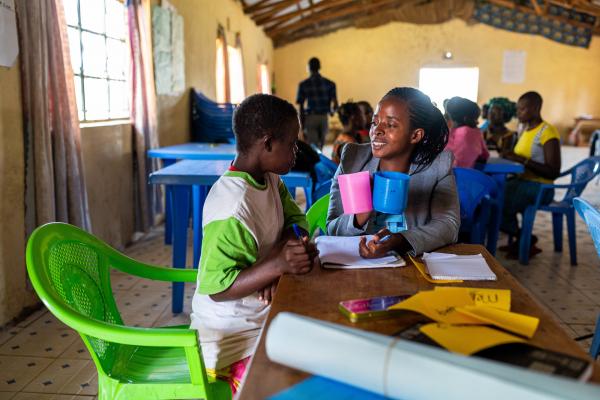
The seeds of change
We’re hoping the visible progress that Clementia and Nora have made will slowly begin to change attitudes towards disability in Kenya and show people that these girls deserve to have an education. I’m hopeful this project will plant the seeds of change.
Thank you so much for your continued support and for helping girls like Nora and Clementia. Seeing what a difference the centres have made for them makes me so proud of the work we are doing here. None of it would be possible without you.
Take care and I’ll write again in April,
Very best wishes,
Peter Onani
VSO Volunteer Teacher Trainer
*Clementia’s and Nora’s names have been changed to protect their identities.
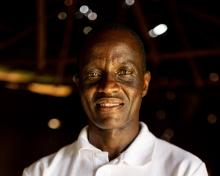
Want to ask a question?
VSO’s Sponsor a Volunteer team will share your message with the VSO volunteer and get back to you with a response. Your email address will not be used, disclosed or transferred to any VSO personnel, it will be stored securely in accordance with VSOs privacy policy. A sample of messages including display names will be published to the Sponsor a Volunteer homepage each month.
Your latest questions answered



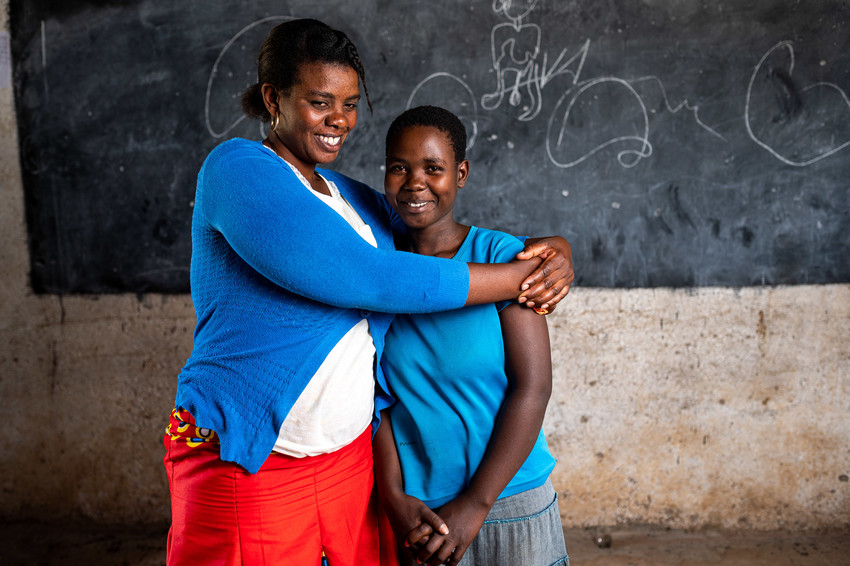
Did you know?
We bring about lasting change not by sending aid, but by working through volunteers to empower communities in some of the world’s poorest regions. You can read more about VSO’s areas of work and discover more about our projects here.

More news from VSO
Five ways volunteers are supporting students with disabilities
With countries around the world in lockdown, children with learning difficulties and disabilities are more vulnerable than ever. We hear from four Rwandan-based volunteers making sure these children aren’t left behind.

